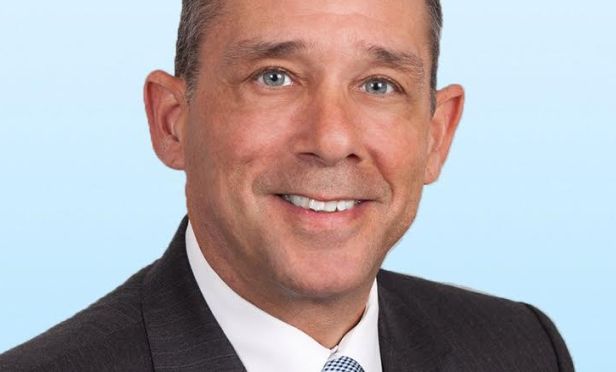
MIAMI—While navigating Flagler Street, particularly at nighttime, you may find it hard to imagine that Downtown Miami could duplicate the renaissance that South Beach's Art Deco district experienced nearly three decades ago. But according to Ken Krasnow, South Florida Market Leader for Colliers International, the signs forecasting such a future are emerging.
Globest.com caught up with Krasnow to find out why investment is now starting to pour into Flagler Street and surrounding streets in part two of this exclusive interview. You can still read part one here.
GlobeSt.com: Why are New York investors zeroing in Downtown Miami?
Krasnow: New York investors understand the value of neighborhood revitalization, repositioning historic properties and acquiring assets early on in the process. Think SoHo, Tribeca and the Meatpacking District, among numerous other revitalized New York City neighborhoods.
Downtown Miami is one of the few pedestrian-oriented neighborhoods in Miami as nearly 200,000 office workers and visitors traverse its streets. The area also possesses one of the highest concentrations of luxury residential units in the world. In the last five years, downtown Miami's population jumped by 29% and is expected to increase by 20% each year. The re-urbanization of Miami's urban core is just beginning.
GlobeSt.com: When are we going to see Downtown Miami turn the corner?
Krasnow: It took more than a decade of behind-the-scenes work to set South Beach on a successful path. Downtown Miami is on its way.
It will evolve into the next great Miami neighborhood because a group of visionaries have grasped the potential of an area surrounded by some the country's largest mixed-use developments, including Brickell City Centre, Miami Worldcenter and All Aboard Florida's Brightline. Because of its proximity to several Metromover stations, the zoning for that area allows much higher density and larger projects. That creates the right conditions for a live, work, play environment, and New York investors see the potential, just like they did three decades ago in Miami Beach.

MIAMI—While navigating Flagler Street, particularly at nighttime, you may find it hard to imagine that Downtown Miami could duplicate the renaissance that South Beach's Art Deco district experienced nearly three decades ago. But according to Ken Krasnow, South Florida Market Leader for Colliers International, the signs forecasting such a future are emerging.
Globest.com caught up with Krasnow to find out why investment is now starting to pour into Flagler Street and surrounding streets in part two of this exclusive interview. You can still read part one here.
GlobeSt.com: Why are
Krasnow:
Downtown Miami is one of the few pedestrian-oriented neighborhoods in Miami as nearly 200,000 office workers and visitors traverse its streets. The area also possesses one of the highest concentrations of luxury residential units in the world. In the last five years, downtown Miami's population jumped by 29% and is expected to increase by 20% each year. The re-urbanization of Miami's urban core is just beginning.
GlobeSt.com: When are we going to see Downtown Miami turn the corner?
Krasnow: It took more than a decade of behind-the-scenes work to set South Beach on a successful path. Downtown Miami is on its way.
It will evolve into the next great Miami neighborhood because a group of visionaries have grasped the potential of an area surrounded by some the country's largest mixed-use developments, including Brickell City Centre, Miami Worldcenter and All Aboard Florida's Brightline. Because of its proximity to several Metromover stations, the zoning for that area allows much higher density and larger projects. That creates the right conditions for a live, work, play environment, and
Want to continue reading?
Become a Free ALM Digital Reader.
Once you are an ALM Digital Member, you’ll receive:
- Breaking commercial real estate news and analysis, on-site and via our newsletters and custom alerts
- Educational webcasts, white papers, and ebooks from industry thought leaders
- Critical coverage of the property casualty insurance and financial advisory markets on our other ALM sites, PropertyCasualty360 and ThinkAdvisor
Already have an account? Sign In Now
*May exclude premium content© 2025 ALM Global, LLC, All Rights Reserved. Request academic re-use from www.copyright.com. All other uses, submit a request to [email protected]. For more information visit Asset & Logo Licensing.








